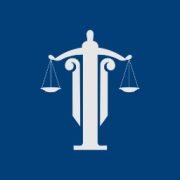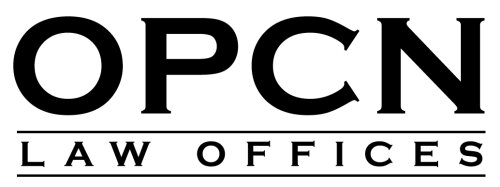Best Juvenile Law Lawyers in Quezon City
Share your needs with us, get contacted by law firms.
Free. Takes 2 min.
List of the best lawyers in Quezon City, Philippines

Dagsaan Monterde Castillo Law and Notary Public (DMC LAW)
15 minutes Free ConsultationAbout Juvenile Law in Quezon City, Philippines
Juvenile Law in Quezon City, as well as the rest of the Philippines, is primarily guided by the provisions of the Juvenile Justice and Welfare Act of 2006 (Republic Act No. 9344), which was amended by Republic Act No. 10630. This law acknowledges the special requirements for juveniles, emphasizing restorative justice and the rights of children. It provides guidelines for the treatment of children in conflict with the law and sets out measures for diversion, rehabilitation, and reintegration rather than punitive approaches. Quezon City's local government units strive to implement these laws with the support of community-based programs and facilities aimed at protecting the welfare of young offenders.
Why You May Need a Lawyer
There are several situations where individuals may require legal assistance in the domain of Juvenile Law in Quezon City:
- If a child is accused of committing a crime, a lawyer is crucial to ensure their rights are protected and they are treated appropriately within the legal framework.
- Parents may need legal advice to understand the implications of their child’s involvement in legal matters and how to best support them.
- Lawyers can assist in navigating the diversion program processes, which aim to rehabilitate young offenders without court trials.
- In situations where a child is a victim of abuse or neglect, legal counsel can help in securing protective measures and ensure justice is served.
- Legal advice might be needed to understand the rights and processes involved in the juvenile justice system, especially for guardians unfamiliar with legal environments.
Local Laws Overview
In Quezon City, Juvenile Law is designed to adhere to national guidelines while addressing local needs. Key aspects include:
- Age of Criminal Responsibility: The age of criminal responsibility is set at 15 years old. Children aged 15 and below are exempt from criminal liability but may be subjected to various intervention programs.
- Diversion Programs: These are community-based interventions for children in conflict with the law, allowing rehabilitation away from judicial proceedings.
- Child-Friendly Facilities: Quezon City provides child-friendly interview rooms and holding areas to ensure that juveniles are treated with dignity and care.
- Legal Representation: The law ensures that children have a right to legal counsel and appropriate representation in all proceedings.
- Rehabilitation and Reintegration: Emphasis is placed on rehabilitating juveniles and assisting their reintegration into society post-incident.
Frequently Asked Questions
What is the purpose of the Juvenile Justice and Welfare Act?
The Act aims to protect the rights of children and provide a favorable condition for their growth by avoiding conventional judicial proceedings and focusing on rehabilitation and reintegration into society.
How does diversion work in Quezon City?
Diversion involves the management and rehabilitation of children in conflict with the law without formal court proceedings, facilitated by community-based programs tailored to each individual case.
What support systems are available for juveniles in conflict with the law?
Support systems include family counseling, psychological assessments, educational programs, and community service tasks, all designed to support positive behavioral changes.
At what age can a child be tried for a crime?
Children aged 15 and below are exempt from criminal liability and cannot be tried; those aged between 15 and 18 may be held responsible depending on the circumstances, provided diversionary programs are not applicable.
Who qualifies as a juvenile delinquent?
A juvenile delinquent is a child, typically under the age of 18, who has committed an act violating the law but is eligible for rehabilitation over punishment.
Are parents liable for the crimes committed by their children?
Parents are not typically held criminally liable; however, they might be required to participate in rehabilitative support programs for their children.
Can a juvenile be detained in a regular jail?
No, juveniles are to be held in child-friendly facilities that prioritize their safety and rights, avoiding conventional jails.
What is the role of a lawyer in juvenile cases?
Lawyers provide crucial legal advice, ensure the child's rights are protected, navigate the legal process, and seek strength-based resolutions that favor rehabilitation.
How can education be continued for a detained juvenile?
Educational programs within facilities or community-based education initiatives provide continued learning opportunities for detained juveniles.
What should parents do if their child is detained?
Parents should seek immediate legal counsel to ensure their child’s rights are protected and that they are guided through the appropriate legal processes and support interventions.
Additional Resources
For more assistance, individuals can reach out to organizations such as:
- Department of Social Welfare and Development (DSWD): Offering a range of social services and interventions for children.
- Philippine Action for Youth Offenders (PAYO): An advocacy group focused on juvenile justice reform and providing support.
- Commission on Human Rights, Philippines: Ensuring protection and legal advice related to children’s rights.
- Bantay Bata 163: A child-focused helpline that provides support and rescue services.
Next Steps
Should you need legal assistance in Juvenile Law, you may follow these steps:
- Contact a qualified lawyer with experience in juvenile cases to discuss your situation and options.
- Research and reach out to governmental or non-governmental organizations dedicated to juvenile welfare for guidance and support services.
- Gather all relevant documents and information regarding the incident involving the juvenile for comprehensive legal advice.
- Participate actively in community programs and support networks designed to benefit juveniles in legal situations.
Understanding your rights and the processes involved is crucial in navigating the field of Juvenile Law to ensure the best outcomes for the young individuals involved.
Lawzana helps you find the best lawyers and law firms in Quezon City through a curated and pre-screened list of qualified legal professionals. Our platform offers rankings and detailed profiles of attorneys and law firms, allowing you to compare based on practice areas, including Juvenile Law, experience, and client feedback.
Each profile includes a description of the firm's areas of practice, client reviews, team members and partners, year of establishment, spoken languages, office locations, contact information, social media presence, and any published articles or resources. Most firms on our platform speak English and are experienced in both local and international legal matters.
Get a quote from top-rated law firms in Quezon City, Philippines — quickly, securely, and without unnecessary hassle.
Disclaimer:
The information provided on this page is for general informational purposes only and does not constitute legal advice. While we strive to ensure the accuracy and relevance of the content, legal information may change over time, and interpretations of the law can vary. You should always consult with a qualified legal professional for advice specific to your situation.
We disclaim all liability for actions taken or not taken based on the content of this page. If you believe any information is incorrect or outdated, please contact us, and we will review and update it where appropriate.












